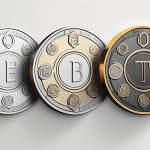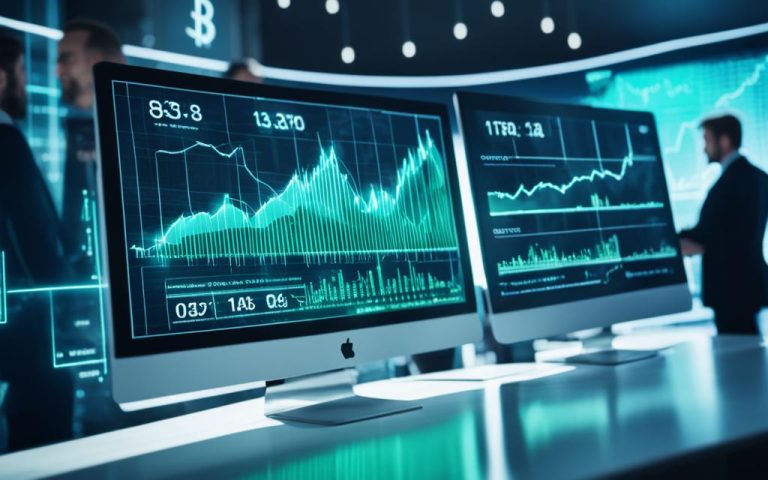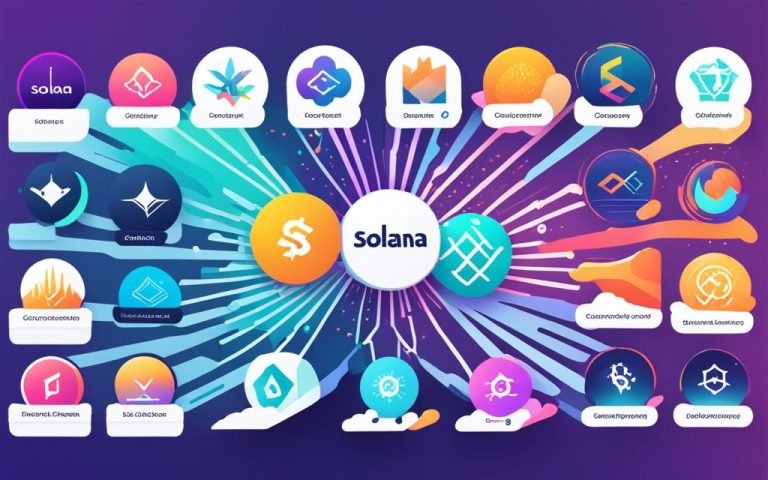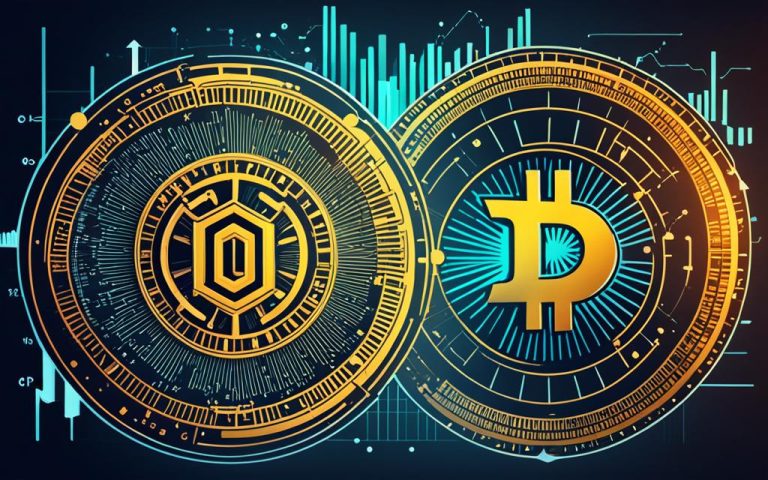Welcome to the exciting world of decentralized exchanges. Here, safe and direct crypto trading is front and center in your blockchain adventure. If you’re on the hunt for the best decentralized exchanges to boost your crypto trading, you’re in the right spot. We’re here to show you some top decentralized exchanges that are changing how traders buy and sell cryptocurrencies.
Uniswap reigns as the top decentralized exchange. Known for its low fees, easy-to-use interface, and support for multiple networks like Ethereum and Binance Smart Chain, Uniswap is the favorite platform for many crypto fans.
For those into stablecoins, Curve is your best pick. It’s famous for its low fees and great APYs on cryptocurrencies like sETH, making it the premier spot for stablecoin trades.
1inch elevates the decentralized exchange experience. As a decentralized exchange aggregator, 1inch searches the market for the best prices and lowest fees for ERC-20 tokens, supporting a vast array of blockchain networks.
If you’re trading on the Binance Smart Chain, you can’t miss PancakeSwap. With its minimal fees and high APYs from pools and farms, PancakeSwap provides a wide range of trading options.
For derivative trading enthusiasts, dYdX stands out. It offers low fees and supports margin and perpetual trading, making it the go-to decentralized exchange for those exploring derivatives.
IDEX shines as a hybrid decentralized exchange on Ethereum. It features low fees, the option to buy crypto with fiat, and the ability to execute multiple trades at once, catering to traders seeking flexibility.
If you want an exchange and portfolio manager in one, check out Balancer. With it, you can trade crypto assets, create your own liquidity pools, and diversify your investment portfolio easily.
In the realm of DeFi analytics, Defillama stands out. This powerful tool compiles prices from various decentralized exchanges, offering detailed insights across numerous chains and networks.
For trading between major blockchains like Bitcoin, Ethereum, Solana, and Avalanche, Osmosis is unmatched. Built on the Cosmos blockchain, it ensures smooth interoperability and liquidity among different blockchain ecosystems.
And let’s not overlook the Stacks ecosystem. StackSwap introduces decentralized trading to Bitcoin fans, supporting BTC and the active Stacks DeFi ecosystem.
With these leading decentralized exchanges, you can start a safe, direct crypto trading adventure. Whether you’re an experienced trader or just starting with cryptocurrencies, these platforms offer great chances to elevate your trading. Keep an eye out for the next sections where we’ll dive into decentralized exchanges further and explore their investment potential.
What is a Decentralized Exchange?
A decentralized exchange (DEX) lets people buy, sell, and trade cryptocurrencies directly. They don’t need a middleman like most platforms. DEXs use blockchain technology, so all trades are between users and recorded on a blockchain.
DEXs remove the need for middlemen like banks, making trading more secure and private. They use smart contracts to verify and complete transactions. This makes the process trustworthy and clear.
Because they use blockchain, DEXs let you trade straight from your wallet. This makes trading smooth and efficient. You also don’t have to share personal info or go through a KYC process.
DEXs work worldwide and are not limited by strict regulations. This means anyone with the internet can trade without restrictions. It opens up financial opportunities for everyone.
Also, DEXs usually have lower fees than other exchanges. Since trades are direct from wallet to wallet, transactions are quicker and more efficient.
Decentralized exchanges give you more control, safety, and privacy with your digital money.
DEXs can handle many different cryptocurrencies. You can trade various digital currencies directly. This makes getting into the crypto market easier and offers more trading options.
However, trading on DEXs can have risks like smart contract issues or liquidity problems. But, their growing use shows they have a lot to offer in the crypto world.
For more about decentralized exchanges, check out educational sites like Chain.link, Gemini Cryptopedia, and Defiprime.
Types of Decentralized Exchanges
There are two main kinds of DEXs: order book DEXs and automated market makers (AMMs).
- Order book DEXs match buy and sell orders in a book, like traditional exchanges. Examples include 0x and dYdX.
- AMMs set prices using liquidity pools and formulas. Well-known AMMs include Bancor and Uniswap.
Decentralized exchanges have grown a lot, with over 35 choices for traders. Each DEX has unique things to offer, depending on what you like.
| DEX Name | Features |
|---|---|
| Uniswap | Automated market maker (AMM) functionality |
| SushiSwap | Automated market maker (AMM) functionality |
| PancakeSwap | Automated market maker (AMM) functionality |
| Bisq | Decentralized trading without centralized control |
| Orca | Decentralized trading without centralized control |
DEXs keep improving with new tech like the Proactive Market Maker algorithm and Inter-Blockchain Communication. This boosts efficiency and bridges different blockchains.
Discover the diverse world of DEXs to enjoy their benefits and join the DeFi revolution.
Why Consider Investing in Decentralized Crypto Exchanges?
Decentralized crypto exchanges (DEXs) offer many good reasons to think about investing. A key benefit is better privacy and security. DEXs don’t ask users to share personal info, giving you full control of your money. Your personal details stay safe and private.
DEXs also make financial services available to everyone around the globe. These platforms don’t allow censorship, which means everyone has the same chance to join in. This opens up the digital asset economy to more people.
DEXs can help you earn money passively too. You can join in liquidity pools and provide liquidity for trading pairs. In return, you get transaction fees as passive income. This way, you can increase your assets while helping the exchange work better.
Another plus point of DEXs is their lower fees. They usually charge much less than centralized exchanges. For those who trade often, this means saving money over time.
DEXs also promise quick and efficient transactions. By trading directly from wallets, users cut out the middleman. This reduces risks and boosts trust and transparency in trading.
Some DEXs let users help make decisions about how the exchange runs. This gives users a say and makes sure the exchange meets their needs. It also creates a welcoming and cooperative space.
Investing in DEXs brings lots of advantages like privacy, security, openness, control over your money, passive income, low fees, quick transactions, less risk, and shared governance. Diving into DEXs could open doors to financial growth and empowerment.
FAQ
What are the best decentralized exchanges for crypto trading?
Some top picks include Uniswap, Curve, 1inch, PancakeSwap, dYdX, IDEX, Balancer, Defillama, Osmosis, and StackSwap.
What is a decentralized exchange?
It’s a place where you can buy, sell, and trade crypto without a middleman. These transactions happen on the blockchain. And, other users help provide what’s needed for trades.
Why should I consider investing in decentralized crypto exchanges?
Decentralized exchanges boost your privacy and keep your funds under your control. They’re also hard to block and welcome everyone. Plus, you can make money by helping out with liquidity.
Compared to centralized ones, they usually charge less. This is great for those who trade a lot. Your trades are quick, which makes the process smoother. And your risk is lower since you trade directly from your wallet.
Besides, some let their users help make key decisions. This means you could have a say in its future.



















